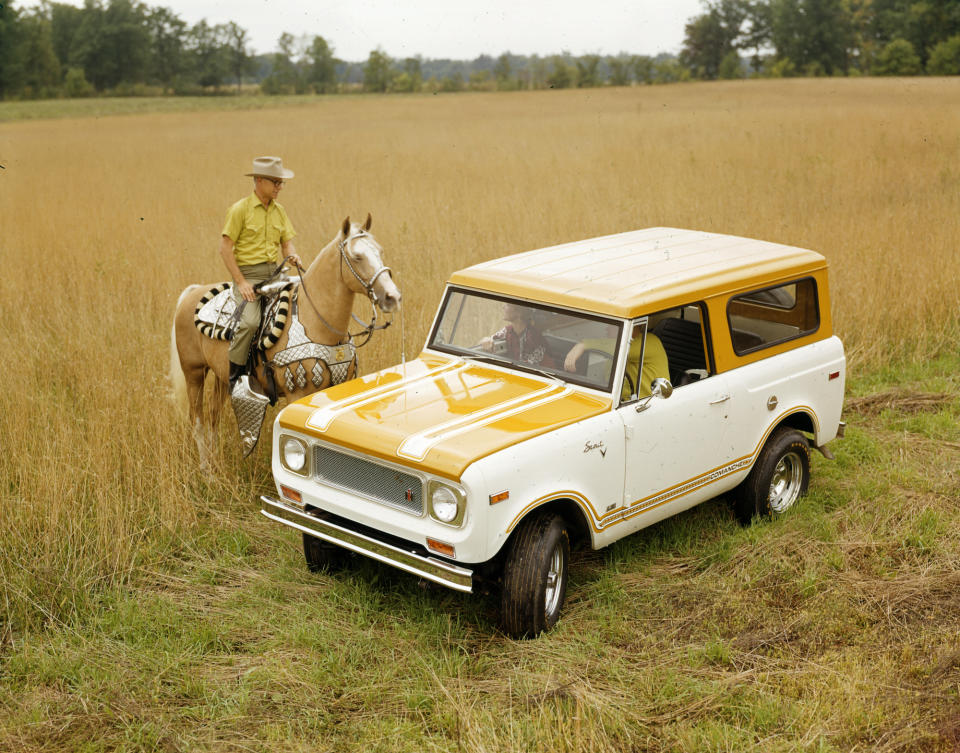How Scout Motors plans to bring rugged, retro cred to the EV era
"We're operating out of everywhere," Scott Keogh said with a laugh in his first interview as CEO of Scout Motors, the American EV upstart spun out of VW Group.
While most established automotive players call the shots from sprawling, corporate palaces, Scout bases much of its operations -- at least for now -- out of a WeWork near Washington, D.C.
Scout Motors' base of operations will eventually "anchor" near the $2 billion factory in South Carolina that was announced Friday, but Keogh believes remote work will be key to Scout Motors' success. The company already has critical employees working remotely around the United States and overseas.
"I believe firmly that era is over," Keogh said of the classic days of centralized organizations. "I don't think it exists anymore in the spirit of Americans, in the spirit of the company."
Origins
Capturing the spirit of Americans is a big part of what Keogh hopes and plans to do with Scout Motors, an all-electric brand launched with a $100 million investment from Volkswagen that plans to start shipping its first vehicle, an off-road focused SUV priced around $40,000, by the end of 2026. Scout was the former consumer automotive brand of International Harvester, which ended production in 1980 in the wake of labor disputes and the 1979 energy crisis.
A 1971 Scout 800B Comanche. Image Credits: Scout Motors
The original International Harvester Scout was a go-anywhere, do-anything utility vehicle, following in the footsteps of the original Jeep but with a more practical, enclosed body five years before the Ford Bronco bolted onto the scene. "In our minds, Scout sort of planted the seed, and if you look at almost every SUV, they've basically stolen that name and done some modification of it," said Keogh, who then fired off familiar nameplates like Trailblazer, Pathfinder, Explorer and Discovery.
Those models may be derivative, but they have one significant advantage over Scout: They've all been in production at some point within the past 40 years. Scout, meanwhile, is in the difficult position of trying to honor the past while making up for nearly a half a century of lost time. If that weren't enough, Scout has to distance itself from Volkswagen, too.
Keogh used the phrase "clean slate" four times during our interview, in reference to everything from software to dealership presence. With its Volkswagen ties, Scout Motors seemingly has a distinct advantage over other EV startups in that it could theoretically piggyback into the hundreds of U.S. VW dealers. However, Keogh says, there are advantages to following the trail blazed by Tesla in defining a way for manufacturers to sell cars directly to consumers.
"We have not decided, but we're taking a long, hard look at it," Keogh said about online direct sales. Historically, he said, manufacturers dominated the scene, but lately the dealerships have been calling the shots, often at the expense of everyone else. "It's always been an industry that played more towards legislation, industrialization, networkization, as opposed to what's the best consumer experience," he said. "This is the differentiator: Awesome retail experience focused on the customer, focused on technology."
Launch target
Scout Motors will launch its first two EVs in quick succession starting in late 2026, Keogh confirmed.
First will be a small, off-road focused SUV that Keogh calls an RUV: a "rugged utility vehicle." The second is a larger truck, which will "lean a little bit more on-road" in terms of its driving characteristics. Details like range and power aren't yet set, but pricing for the RUV is meant to start in the $40,000 range, while the truck will be "a bit north of there."
Neither, though, will be lacking in off-road capability, a brand new focus for the Volkswagen Group.

 Yahoo Autos
Yahoo Autos 
